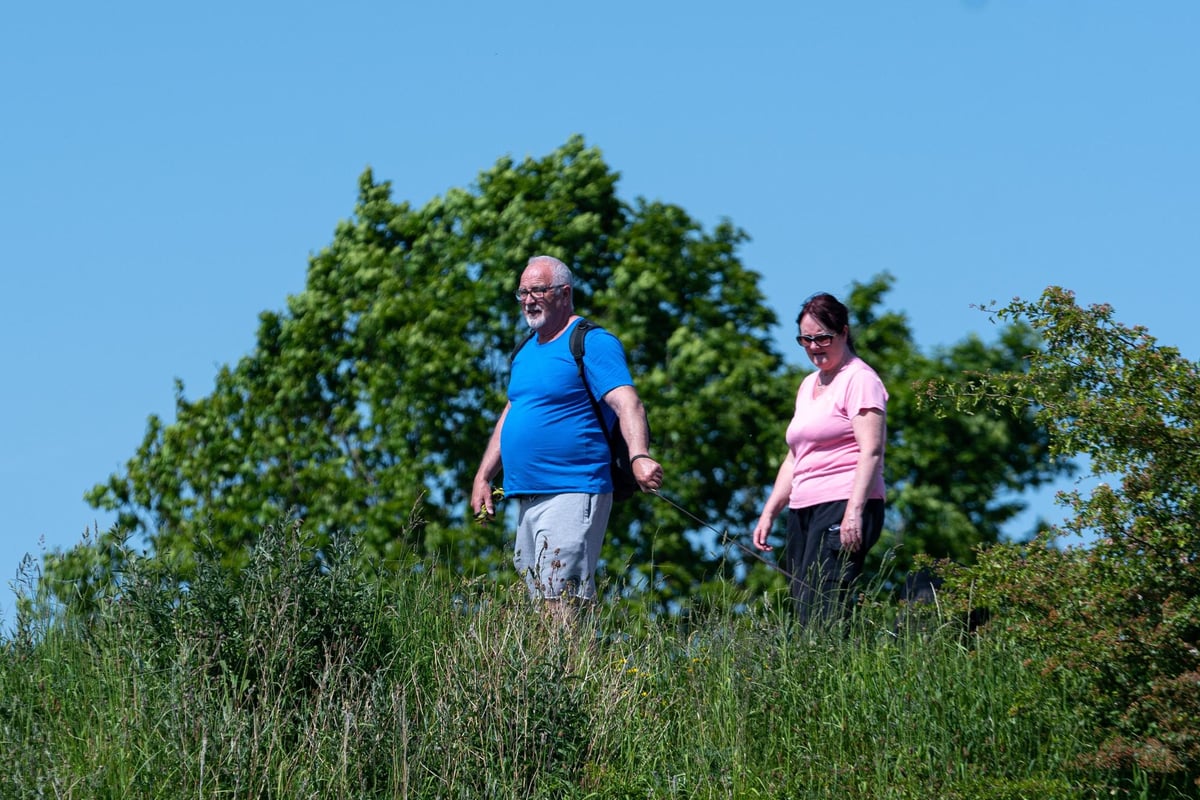Shortly after being elected last summer, I introduced my first ever Bill to parliament. There are many, many important issues I want to legislate on, but I chose to start with something I know matters to lots of my constituents: pesticides. Specifically, banning them.
Brighton and Hove is not unfamiliar with the idea of a pesticides ban. In 2019, our then Labour controlled council, supported by the Greens and other parties, ended its use of harmful glyphosate. But instead of following expert advice and the proven to work three-year phase-out model used by other councils, an immediate ban was imposed leading to huge plant growth and no plan to control it.

Cut to last year, and controlled droplet application of toxic glyphosate was once again being carried out in our city. An opt-out scheme has been rushed out with limiting eligibility leaving some residents with no choice about whether poison is used on their streets. Urban pesticide use may only make up 10 per cent of the UK’s total usage, but it’s the second most common way people are exposed to these harmful chemicals after diet.
(Image: House of Commons) Since 2015, over 100 UK councils have either significantly reduced or ended their use of pesticides and 50 are now entirely pesticide-free. But they’ve been forced to do so without guidance from central government, charting their own course, which in the case of Brighton resulted in glyphosate being reintroduced less than five years after a decision to end its application in our city. But there is another way.
The most important thing that the Government can do is introduce legislation that would ban local authorities, followed by other public authorities, from using pesticides in villages, towns and cities. And this is exactly what my Bill would seek to do. A crucial part of my Bill is a requirement on the Secretary of State to publish guidance to assist local and public authorities in phasing out their use of pesticides.
Training schemes to develop pesticide-free approaches and trial what works, support networks to bring councillors and officers together to share best practice, financial support and ring-fenced funding for extra staff will help councils to make a success of their bans and permanently end unnecessary pesticide use. The legislation would set out exemptions, so that the ban will not apply to the use of pesticides which are necessary to prevent serious risks to public safety, public health and public infrastructure or serious risks to the environment. Plants shouldn’t be left to become dangerous obstructions that block paths and prevent wheelchairs and buggies from getting by, but there are alternative methods of clearing them that don’t risk our health.
The UK is in the grips of a dire biodiversity crisis, and we’re often highlighted as being one of the most nature depleted countries in Europe. Where Finland has 89 per cent of its biodiversity left intact, the UK only has 50. Towns and cities can have a huge role in reversing this crisis by becoming an oasis for wildlife.
Pavement plants offer food and shelter to bees, insects, hedgehogs and birds, including Brighton’s iconic swifts and starlings. I recently spent an extremely sunny Saturday afternoon with the Hanover Action garden volunteers. After a brisk walk up Albion Hill, I was handed a miniature ‘I-spy’ booklet of plants, beautifully illustrated by a volunteer, which we used to identify the huge variety of street plants growing in Hanover.
From yellow Alexanders to Zig-zag clovers, these plants are providing vital food and nectar to Hanover’s many butterflies, birds and insects. And while glyphosate isn’t being sprayed in the area, we saw the stark signs of where these beautiful plants had been scraped away, leaving nothing behind. Sian with members of the Hanover Action Garden Volunteers (Image: House of Commons) I was really honoured this month to host Pesticide Action Network (PAN UK), an excellent Brighton based charity, in parliament for an event that combined scientific expertise with unique perspectives on the impact of pesticide use in urban and rural areas.
Delivering a presentation as part of the event, Professor Michael Antoniou opened my eyes once again to how careless our regulations are when it comes to pesticides, with regulators failing to consider the ‘cocktail’ of chemicals used to create pesticide products like Roundup. Individual elements like Glyphosate are mixed with even more potent ingredients resulting in really dangerous combinations. Martin Lines, CEO of the Nature-Friendly Farming Network, warned us about nature’s ability to overpower glyphosate, and the very real danger of crops becoming pesticide-resistant.
But as Martin pointed out, farmers farmed without pesticides before, and with proper support, they can learn to do so again. There is really no need for any council to be using these chemicals that put people, children and pets at danger. Many councils have successfully ended their pesticide use, and with the proper legislation and support, hundreds more could follow.
I’ve introduced a motion in parliament for MPs to sign in support of my Bill, and already it has huge cross-party support. There is political appetite for making this change and with the Bill’s second reading rapidly approaching, I’ll keep pestering my parliamentary colleagues to vote for keeping residents safe and saving our beautiful pavement plants..
Health

Siân Berry MP: It’s time for a national pesticide ban

Shortly after being elected last summer, I introduced my first ever Bill to parliament. There are many, many important issues I want to legislate on, but I chose to start with something I know matters to lots of my constituents: pesticides. Specifically, banning them.















